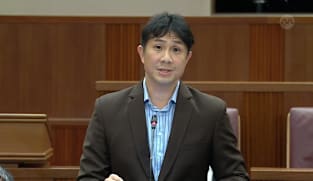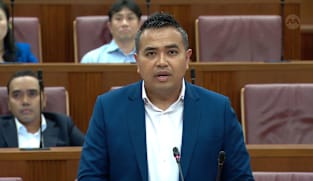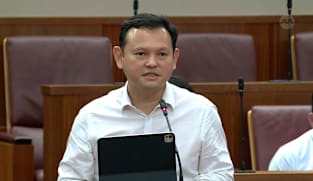Tan Kiat How on decision to put down saltwater crocodile near Marina East Drive
NParks takes a science- and community-based approach to wildlife management. In the case of estuarine crocodiles like the one sighted near Marina East Drive, public safety is a major consideration as they are apex predators and stealthy and opportunistic feeders. When there are sightings of crocodiles in Singapore, NParks will first assess if there is an immediate threat to public safety. For example, if it is sighted at recreational places, NParks will trap and relocate or rehome it. If there are no suitable options for relocation and rehoming, it will be humanely put down. This approach is aligned with that taken in many other jurisdictions. The crocodile found near Marina East Drive was a large adult - around three metres long. It was sighted around two kilometres away from East Coast Park, which is about a 10-minute swim for a crocodile moving at stealth. As East Coast Park is a popular destination, NParks assessed that it posed a significant risk to public safety. It first explored relocating the crocodile to Sungei Buloh Wetland Reserve, which already has around 20 crocodiles and no longer has capacity for more. Moving the crocodile away from Marina East was not an option as it may venture to East Coast Park or another area with high human activity along the coastline. NParks also reached out to Mandai Wildlife Group, which determined that it would not be able to rehome it. As there was no feasible option for relocation or rehoming, NParks had to euthanise the crocodile. This was done by a veterinarian, in accordance with international standards. Minister of State for National Development Tan Kiat How gave this update in reply to an MP’s questions in Parliament on Tuesday (Nov 7). He said NParks will continue to monitor and carefully manage the populations of local wildlife species to safeguard public safety, and deepen collaborations with its partners to promote safe and responsible human-wildlife encounters.
NParks takes a science- and community-based approach to wildlife management. In the case of estuarine crocodiles like the one sighted near Marina East Drive, public safety is a major consideration as they are apex predators and stealthy and opportunistic feeders. When there are sightings of crocodiles in Singapore, NParks will first assess if there is an immediate threat to public safety. For example, if it is sighted at recreational places, NParks will trap and relocate or rehome it. If there are no suitable options for relocation and rehoming, it will be humanely put down. This approach is aligned with that taken in many other jurisdictions. The crocodile found near Marina East Drive was a large adult - around three metres long. It was sighted around two kilometres away from East Coast Park, which is about a 10-minute swim for a crocodile moving at stealth. As East Coast Park is a popular destination, NParks assessed that it posed a significant risk to public safety. It first explored relocating the crocodile to Sungei Buloh Wetland Reserve, which already has around 20 crocodiles and no longer has capacity for more. Moving the crocodile away from Marina East was not an option as it may venture to East Coast Park or another area with high human activity along the coastline. NParks also reached out to Mandai Wildlife Group, which determined that it would not be able to rehome it. As there was no feasible option for relocation or rehoming, NParks had to euthanise the crocodile. This was done by a veterinarian, in accordance with international standards. Minister of State for National Development Tan Kiat How gave this update in reply to an MP’s questions in Parliament on Tuesday (Nov 7). He said NParks will continue to monitor and carefully manage the populations of local wildlife species to safeguard public safety, and deepen collaborations with its partners to promote safe and responsible human-wildlife encounters.



















